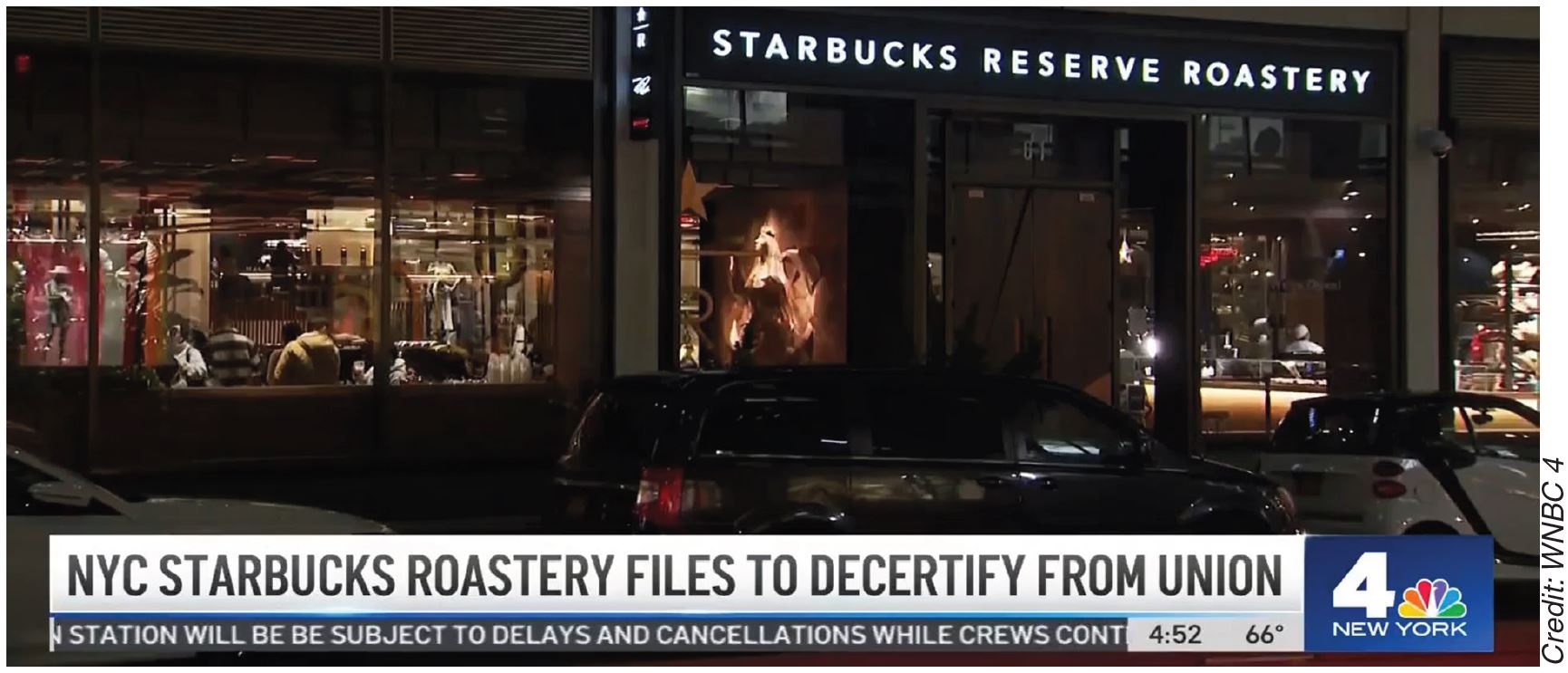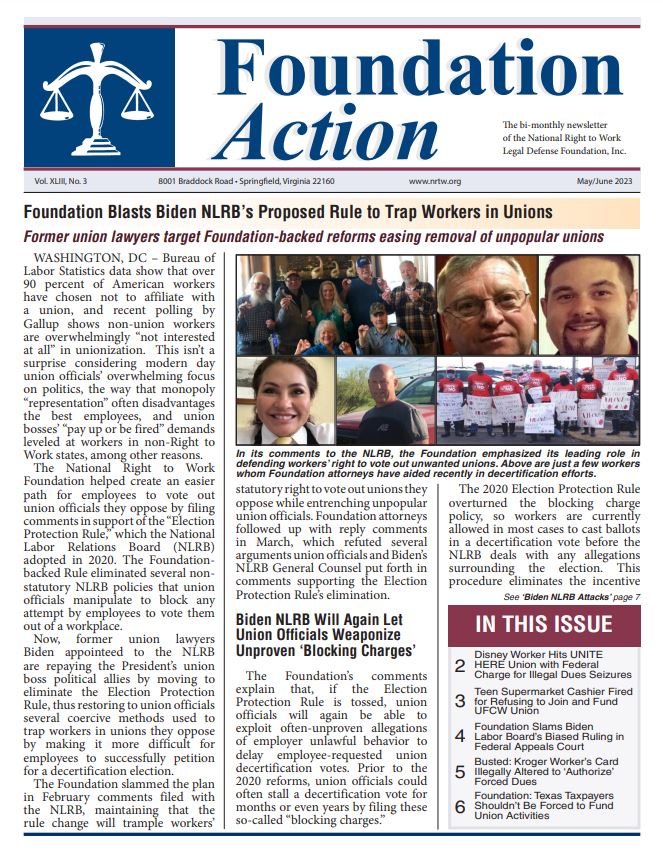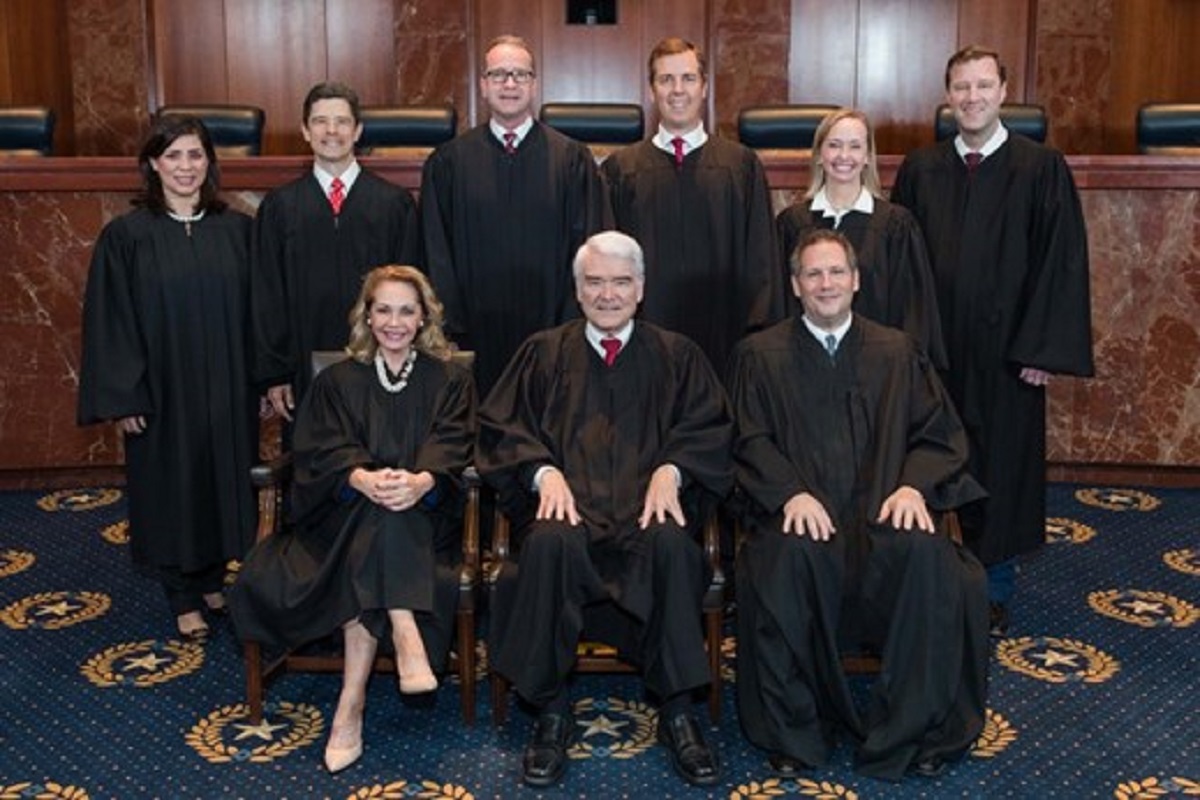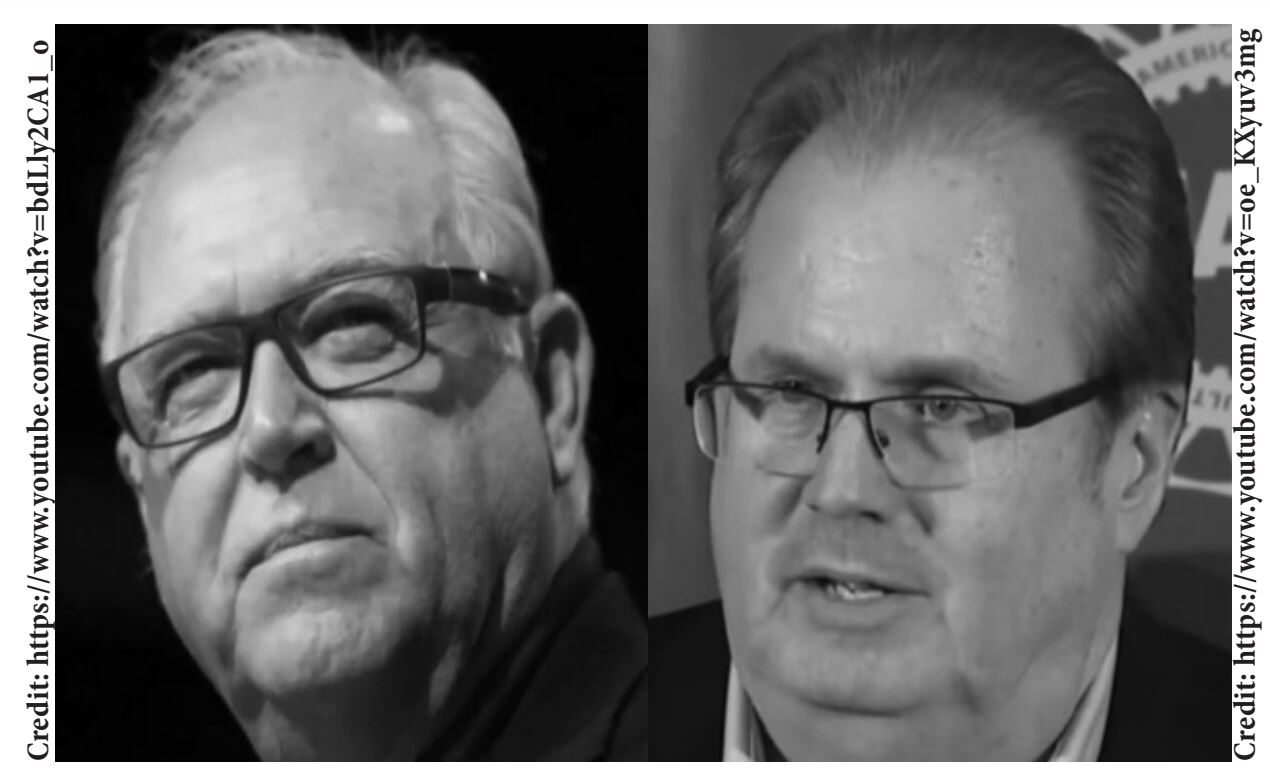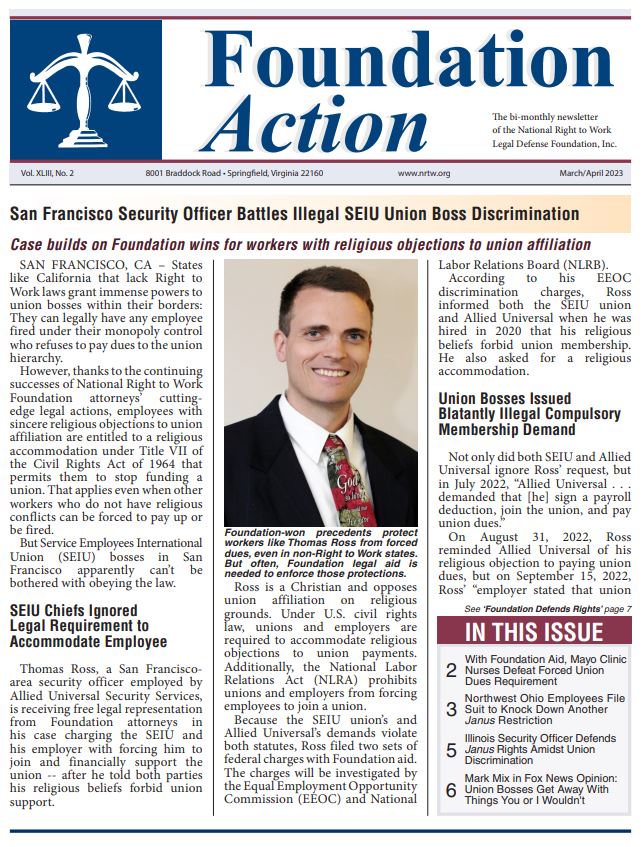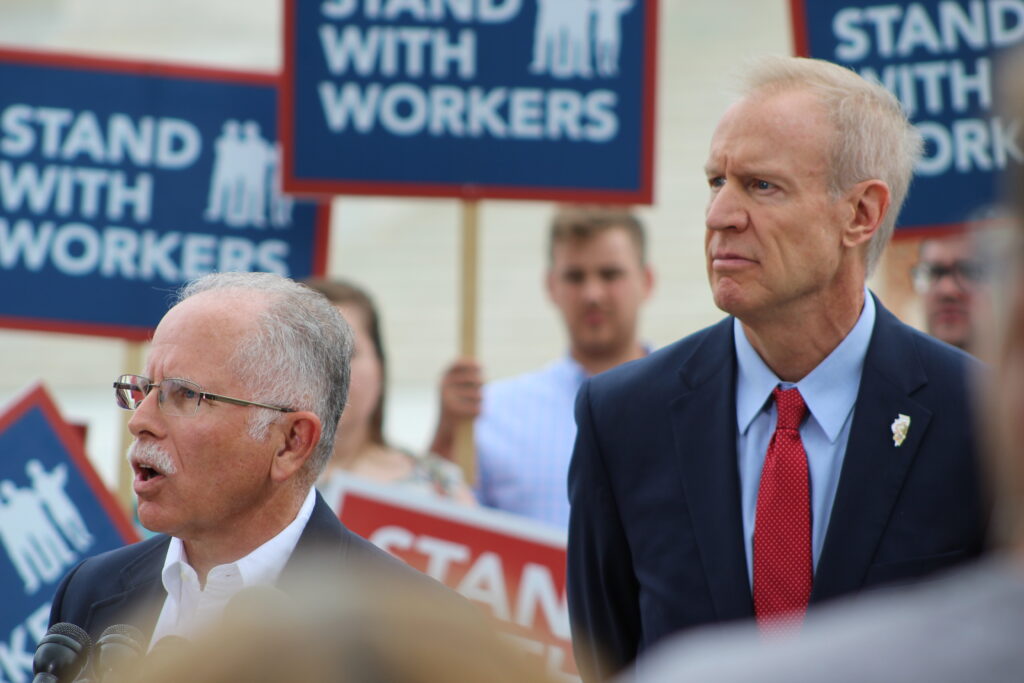Foundation Slams NLRB, ILA Union Officials in Brief to Fourth Circuit Court
The following article is from the National Right to Work Legal Defense Foundation’s bi-monthly Foundation Action Newsletter, July/August 2023 edition. To view other editions of Foundation Action or to sign up for a free subscription, click here.
Foundation defends union-free SC port workers who would lose their jobs under NLRB ruling
Foundation staff attorneys are fighting to ensure that Charleston’s state-of-the-art Hugh K. Leatherman Terminal doesn’t become a safe harbor for ILA union bosses’ anti-worker schemes.
CHARLESTON, SC – National Right to Work Foundation staff attorneys have joined the fight against the International Longshoremen’s Association (ILA) union’s ongoing gambit to idle Charleston’s state-of-the-art Hugh K. Leatherman Terminal if the union can’t get control of all jobs at the facility.
Hostile Union Power Play Seeks to Put Non-Union Workers Out of Job
The Foundation recently filed a legal brief with the Fourth Circuit Court of Appeals in the case South Carolina Ports Authority (SCPA) v. National Labor Relations Board (NLRB). In the case, the SCPA is challenging the Biden NLRB’s ruling permitting ILA union bosses to file multi-million-dollar lawsuits against any cargo carrier that docks at Leatherman until the union gains control of all crane lift equipment jobs at the facility.
Since its opening in March 2021, some of the work at Leatherman Terminal has been performed by non-union state employees, some of whom have worked for the SCPA for years. The brief argues that if ILA union bosses’ power grab succeeds, it will “cause grievous harm to 270 State port workers and their families.”
The Foundation “submits this brief to provide a voice for the otherwise voiceless non-union State employees, and to give the Court a unique perspective on the stakes involved for those workers and their families,” the brief states. The brief highlights the dire consequences of the ILA maneuver for control of Leatherman’s 270 employees, who are otherwise protected by state law from monopoly union control.
According to the brief, South Carolina spent over $1 billion to develop the terminal, but due to the ILA’s power grab “the only way for South Carolina’s $1 billion Leatherman Terminal to be usable would be for the State to turn the facility over to a private employer with an ILA contract and discharge the 270 State employees.” The devastating effects for current employees and their families wouldn’t stop there if the ILA is victorious in the case. Even if the fired state workers were to seek new employment at Leatherman with a private contractor under the union’s control, the ILA union’s seniority provisions and hiring rules would likely bar them from being rehired.
ILA Union Officials Have History of Corruption
The attempt by ILA union officials to seek total control over workers at the Leatherman terminal is hardly the only underhanded tactic the ILA has been linked to. In 2022, the New York Daily News reported ILA chiefs negotiated “deals” where mob-linked longshoremen in New York and New Jersey could get paid for 27 hours of “work” per day.
“ILA union officials, with assistance from the NLRB, are directly working to destroy the livelihoods of these 270 South Carolinians,” commented National Right to Work Foundation Vice President Patrick Semmens. “The NLRB’s blatant disregard of the rights and wellbeing of workers and siding with union tyrants is outrageous.”
“The non-union port workers who have called Leatherman their workplace for over a decade must be protected,” added Semmens.
Foundation Fights For Starbucks Workers Seeking to Oust Union
The following article is from the National Right to Work Legal Defense Foundation’s bi-monthly Foundation Action Newsletter, July/August 2023 edition. To view other editions of Foundation Action or to sign up for a free subscription, click here.
Majority of workers at flagship NYC Starbucks Roastery want decertification vote
NEW YORK, NY – Union bosses and their bought-and-paid-for political allies have been touting Starbucks as the latest and greatest frontier in union organizing. But, as soon as legally permitted after several high-profile Starbucks unionization efforts, workers are already seeking to vote out union officials.
Kevin Caesar, an employee of the high-end Starbucks Reserve Roastery location in Manhattan, sought out Foundation legal aid this May. He sought assistance in submitting a petition backed by a majority of his colleagues to the National Labor Relations Board (NLRB) for a vote to remove, or “decertify,” Starbucks Workers United (SBWU), and their puppet-masters at the Service Employees International Union (SEIU), from the Roastery. Under the National Labor Relations Act (NLRA), workers must wait one year after a union is installed before seeking to remove it, meaning Caesar and his colleagues essentially filed their decertification petition as soon as allowed by the law.
“We have seen our workplace both with and without the union. We believe that the union is looking out for itself more than it is looking out for Starbucks partners, who do not want forced dues and who can advocate for ourselves,” stated Caesar about why he wants to be free of the union.
“That is why a majority of us have decided we would be better off without the union. The fact that the union officials have forced us to go through this decertification process despite the majority of workers stating they do not want to be represented by this union shows how little regard the union has for the will of the workers,” he added. “We call on union officials to respect our rights and not attempt to fight this vote.”
With the petition filed, the NLRB should now promptly schedule a secret ballot election to determine whether a majority of workers want to end union officials’ power to impose a contract, including forced dues, on the workers. However, SBWU officials have already announced they will seek to block the vote, a matter Foundation attorneys quickly opposed in a brief to the NLRB.
Worker Dissatisfaction with Unions Growing Nationwide
The Starbucks workers are just the latest example of growing dissatisfaction with union officials’ so-called “representation.” Currently, worker requests for Foundation aid in decertifying an unwanted union are at an all-time high. NLRB statistics similarly show a 20% increase in decertification petitions last year versus 2021.
Unfortunately, the NLRB’s union decertification process is prone to union boss-created roadblocks, which can impact the Starbucks workers if union officials plot to stay in power regardless of workers’ wishes. Foundation-backed NLRB reforms from 2020, collectively known as the “Election Protection Rule,” have made it somewhat easier for workers to escape unwanted union “representation,” by eliminating the most egregious “blocking charge” tactics used by union bosses to delay or stop decertification elections entirely. “Blocking charges” are unverified union boss allegations of employer misconduct, often unrelated to workers’ desire to decertify.
Currently, the Biden-appointed NLRB majority is conducting rulemaking to roll back these protections and make it much harder for workers to decertify a union.
Foundation Provides Legal Notice to Starbucks Employees
After being in contact with multiple Starbucks workers interested in how to resist union control, the Foundation issued a legal notice informing employees of the coffee chain of their right to petition for a vote to oust an unpopular union.
“No worker anywhere should be forced under so-called union ‘representation’ they oppose,” commented National Right to Work Foundation President Mark Mix. “Starbucks workers around the nation that fall victim to union tyranny should know they can turn to Foundation staff attorneys for assistance.”
“Foundation staff attorneys are now fighting to ensure that these workers are not denied the vote that they are entitled to under federal law to remove union control they oppose,” continued Mix. “Union bosses should not be allowed to keep their grip on power simply by disenfranchising those they claim to ‘represent.’”
Full Foundation Action May/June 2023 Newsletter Now Online
All articles from the May/June issue issue of Foundation Action are now on the website.
In this issue:
- Foundation Blasts Biden NLRB’s Proposed Rule to Trap Workers in Unions
- Disney Worker Hits UNITE HERE Union with Federal Charge for Illegal Dues Seizures
- Teen Supermarket Cashier Fired for Refusing to Join and Fund UFCW Union
- Foundation Slams Biden Labor Board’s Biased Ruling in Federal Appeals Court
- Busted: Kroger Worker’s Card Illegally Altered to ‘Authorize’ Forced Dues
- Foundation: Texas Taxpayers Shouldn’t Be Forced to Fund Union Activities
- Fight for Worker Freedom with an IRA Gift
Recent articles can be found here. To sign up for a free copy of the newsletter via mail please see the form at the bottom of this page.
Foundation: Texas Taxpayers Shouldn’t Be Forced to Fund Union Activities
The following article is from the National Right to Work Legal Defense Foundation’s bi-monthly Foundation Action Newsletter, May/June 2023 edition. To view other editions of Foundation Action or to sign up for a free subscription, click here.
Brief says Janus explains why Texas Supreme Court must invalidate ‘official time’ scam
Don’t Mess with Taxes: The Foundation urged the Texas Supreme Court (above) in recent legal briefs to quash the City of Austin’s scheme funneling taxpayer money to union ideological activities.
AUSTIN, TX – Union officials spend billions of dollars to influence the political system every election cycle. This is why they are so desperate for forced-dues power — it gives them a guaranteed stream of revenue to sustain their agendas, regardless of whether workers support the union hierarchy’s aims.
But workers are increasingly taking advantage of their rights under Right to Work laws and the landmark National Right to Work Foundation-won Janus v. AFSCME U.S. Supreme Court decision to refrain from financially supporting union bosses of whom they do not approve.
Union bosses in Austin, TX, have apparently worked around this dilemma by shifting the burden for funding the union agenda to taxpayers. Through a so-called “official time” scheme, City of Austin employees who are union officials receive compensation from the public purse for conducting union business on the clock.
‘Official Time’ Boosts Inherently Political Government Union Agenda
Foundation attorneys recently filed a brief in the Texas Supreme Court case Roger Borgelt v. City of Austin, arguing that the Foundation-won Janus decision definitively shows why Austin’s scheme violates the Texas Constitution’s prohibitions against payouts of public funds to serve private interests (known as the “Gift Clauses”). The High Court ruled in Janus that forcing public sector workers to fund any union activities as a condition of employment violates the First Amendment, and that union dues can only be deducted from a public sector worker’s paycheck with his or her freely given consent.
An “official time” scheme, which instead forces taxpayers into funding those same union activities, “conflicts with the Supreme Court’s reasons for holding in Janus that it violates the First Amendment to require public employees to subsidize union activities,” says the Foundation’s brief.
The Foundation points out in its brief the Court’s Janus holding that all public sector union undertakings “constitute speech and petitioning on matters of political…concern,” and that by funneling taxpayer money into such speech “the City is effectively paying individuals to lobby the City for a private advocacy organization and its members.”
“The notion that this political advocacy predominantly serves a public purpose, as opposed to predominantly benefiting the private organization, is untenable,” the brief reads.
The brief also refutes an assertion from a lower Texas court that “official time” payments made by the city are actually part of union officials’ compensation for their normal job duties. This defies Janus’ reasoning that public employees who are also union officials “do not act as government agents pursuing their official job duties when they act as union officials.”
“For example, in granting paid leave to employee Bob Nicks to act as the Union’s president, the City is not paying Mr. Nicks for his services as a firefighter or as a public servant,” the brief explains. “The City is paying Mr. Nicks for his services as an agent of a private organization.”
The brief also reveals the disturbing implications of the union-backed argument that taxpayer subsidies for “official time” are needed to maintain harmonious relations between the city and the union: “If respondents contend that Union officials would disrupt City services if they did not receive [‘official time’], that would make the benefit akin to the City paying protection money” to union officials, reads the brief.
Union Bosses Should Not Get Public Funds to Pursue Union Interests
“The Texas Supreme Court should recognize that union officials are not entitled to a slice of taxpayer funds to ‘bargain’ against public interests,” commented National Right to Work Foundation Vice President and Legal Director Raymond LaJeunesse. “Texas’ Gift Clauses forbid the payout of public funds for activities that don’t have a tangible public benefit, and it’s hard to think of an arrangement that violates the Clauses more plainly than letting union bosses pursue private union business on the taxpayer dime.”
“Although Janus now protects public employees around the country from being forced to fund union activities and speech against their will, unfortunately many states and municipalities across the country permit union bosses to subsidize those same inherently political activities using direct payment of tax dollars,” LaJeunesse added.
“If union bosses cannot convince rank-and-file workers to voluntarily fund such activities as Janus requires, they should re-examine their priorities, not seek to force taxpayers to pay for what public employees will not.”
Foundation Slams Biden Labor Board’s Biased Ruling in Federal Appeals Court
The following article is from the National Right to Work Legal Defense Foundation’s bi-monthly Foundation Action Newsletter, May/June 2023 edition. To view other editions of Foundation Action or to sign up for a free subscription, click here.
Brief contends NLRB distorted precedent to trap workers in union they oppose
A majority of J.G. Kern employees petitioned to oust the UAW, which has seen two of its former presidents (Gary Jones, right, and Dennis Williams, left) go to jail for corruption. But a biased NLRB ruling trapped the workers in UAW ranks anyway.
WASHINGTON, DC – Foundation staff attorneys recently filed an amicus brief with the D.C. Circuit Court of Appeals in a case challenging a National Labor Relations Board (NLRB) decision reversing workers’ attempt to remove union “representation” they oppose.
In the case, J.G. Kern employees, frustrated with the United Auto Workers (UAW) Local 228 union, decided to petition to decertify, or formally remove, the union from their workplace. The workers presented this majority petition to their employer, leading to the company removing its recognition of the union.
The petition contained overwhelming support from workers in favor of removing the union. Yet, after the company withdrew recognition from the union, UAW officials ran to the Biden Labor Board in an attempt to remain in power. The Biden-appointed NLRB majority sided with the union officials by re-imposing the unpopular union over the workers’ objections.
With the case now in the federal court of appeals, the Foundation filed an amicus brief arguing the NLRB’s April 2022 ruling ignores precedent and misapplies longstanding law in siding with union officials.
Decertification Rules Already Rigged Against Workers Opposed to Union Affiliation
As the brief points out, workers looking to file a petition to remove a union they oppose already face numerous hurdles due to NLRB rules, most of which are contained nowhere in the federal statute the NLRB is charged with enforcing.
For example, a petition must be gathered outside of work hours, and outside of work-related areas. Also, unless employees use certain Board-specified language in their petition, the petition is invalid. Furthermore, employees cannot ask their employer for further information regarding the decertification process or the petition will be invalid.
The Foundation’s brief observes how workers must operate “in the dark, without help from their employer, and even if they do everything right, their efforts might come to naught through no fault of their own.” It also shows how the Biden Board has made it more difficult for individual workers to express their right to decertify unwanted, unpopular unions.
Biden NLRB Aims to Force Union on Workers Who Overwhelmingly Object
Under the Board’s “certification bar” doctrine, a union that wins a secret ballot election cannot be challenged for one year after its victory is certified by the NLRB. In this case, the UAW’s certification bar ended on October 3, 2019. In November 2019, J.G. Kern employees delivered a majority-backed petition to their employer.
The Biden Board claimed, however, that because J.G. Kern did not bargain in good faith during a three-month period at the beginning of the certification year, the employees’ majority petition was invalid. According to the Biden Board, the employer’s alleged unfair labor practices prospectively “extended” the certification year beyond its normal 12-month period.
The brief highlights the disingenuousness of the Board, pointing out that “the employees would have to divine the future to know they were collecting a petition during the ‘extended certification year.’” The Foundation urges the D.C. Circuit to command the Board to follow precedent that requires the Board to determine whether there was a “nexus” between the employer’s unfair labor practices and the decertification petition.
NLRB’s Power Grab Takes Away Workers’ Rights
The Foundation’s brief emphasizes how the Board’s decision can abolish employees’ rights guaranteed by the National Labor Relations Act. An example of that is the J.G. Kern workers’ petition, where it was only after the petition was gathered that the Board extended the union’s certification bar period.
The brief notes that usually “an employee’s decertification petition is presumptively valid unless there is a causal nexus between the unfair labor practice and the petition.” However, this is not the case under the J.G. Kern ruling.
Should the NLRB’s ruling be upheld, it “will further incentivize incumbent unions to file unfair labor practice charges to chill employees’ Section 7 ability to collect petitions,” the brief concludes.
“The NLRB’s blatant disregard for the rights of workers who don’t want anything to do with coercive unionism is on full display in this case,” commented Mark Mix, president of the National Right to Work Foundation. “The arbitrary cherry-picking of legal precedents to fit the Board’s agenda is outrageous, while expected, given the Biden Administration’s all-out effort to expand Big Labor’s coercive ranks.
Teen Supermarket Cashier Fired for Refusing to Join and Fund UFCW Union
The following article is from the National Right to Work Legal Defense Foundation’s bi-monthly Foundation Action Newsletter, May/June 2023 edition. To view other editions of Foundation Action or to sign up for a free subscription, click here.
Union officials required teen to violate his religious beliefs or be fired
Josiah Leonatti may be young, but he’s not afraid to stand up to UFCW bosses, who got him fired over objecting to union membership and dues on religious grounds.
PITTSBURGH, PA – Josiah Leonatti, a high schooler, was fired last year for his religious beliefs. Giant Eagle and the United Food and Commercial Workers (UFCW) union compel employees, like Leonatti, to either join or fund the union to keep their jobs. The problem for Leonatti is that he cannot do so without compromising his religious beliefs.
When Leonatti was hired, he never expected that union bosses would force him to choose between his job and his religious convictions. But the union officials did just that.
With free legal aid from National Right to Work Foundation staff attorneys, Leonatti hit UFCW union officials and Giant Eagle in January with federal discrimination charges. Although Giant Eagle rehired Leonatti to limit liability, neither Giant Eagle nor the union agreed to accommodate his religious beliefs. So Leonatti faces discharge, again, unless he funds the union.
Moreover, the union demands that Leonatti submit to an illegal “religion test.” Before the company and union will consider accommodation, they demand that Leonatti answer irrelevant and inappropriate questions to determine whether his religious beliefs are valid.
UFCW Bosses Tried to Get Teen Fired After He Voiced Religious Objections
Foundation attorneys filed charges for Leonatti against the union at both the Equal Employment Opportunity Commission (EEOC) and the National Labor Relations Board (NLRB) based on federal law. Foundation attorneys also filed charges against Leonatti’s employer, Giant Eagle.
Federal law requires unions and employers to accommodate employees who have religious objections to joining or paying dues to a union. And federal law also prohibits forced union membership regardless of a worker’s reason for not wanting to affiliate with a union.
Leonatti’s charges report that he attended employee training last year as a cashier trainee. There, a store manager told new hires that they “must sign papers to join the United Food And Commercial Workers.” According to the NLRB charges, “No other options were even hinted at.”
After reviewing the papers with his family, Leonatti’s charges explain, he mailed a letter to UFCW officials detailing his sincere religious objections to joining and supporting the union. He also presented the same letter in person at training.
Rather than accommodate his religious beliefs as required by law, a company official “dismissed [Leonatti] from training and sent [him] home.” The same official later called Leonatti and told him that union membership is compulsory at Giant Eagle, and admitted the grocery store had terminated him over his refusal to join.
UFCW officials responded to Leonatti’s letter by mail on November 10, 2022, rejecting the written explanation of his religious objection and demanding he “complete its religious examination” before they even considered granting him an accommodation. Even if he passed this “test,” the charges say, union officials threatened that he would still have to pay an amount equal to full UFCW union dues to a charity approved by union bosses. Giant Eagle has not offered a religious accommodation to Leonatti, and the union has not retracted its threats or agreed to accommodate him.
Teen’s Firing Shows Need for Pennsylvania Right to Work Protections
Leonatti’s EEOC charges seek to compel the UFCW union and Giant Eagle to provide him a legally required religious accommodation. In addition, the NLRB charges state that relief must include unitwide notice and corporate training regarding workers’ right to refrain from union membership, among other remedies.
“Union bosses’ attempt to coerce a high school student to violate his religious beliefs is unconscionable and illegal,” commented National Right to Work Foundation Vice President Patrick Semmens. “We’re proud to support Mr. Leonatti as he defends his rights and beliefs. This should serve as a stark reminder that all Americans deserve Right to Work protections.”
“If Pennsylvania were a Right to Work state, Leonatti wouldn’t be forced to present his religious objections to expectedly hostile union chiefs,” Semmens added. “In a Right to Work state, he and other dissenting employees would have a statutorily protected right to cut off dues payments for any reason. All employees deserve the right to choose whether to fund a union.”
Disney Worker Hits UNITE HERE Union with Federal Charge for Illegal Dues Seizures
The following article is from the National Right to Work Legal Defense Foundation’s bi-monthly Foundation Action Newsletter, May/June 2023 edition. To view other editions of Foundation Action or to sign up for a free subscription, click here.
Union officials ignoring worker’s right under Florida Right to Work law to stop dues payments
Not so magical: Lurking behind Disney World’s cheery exterior are UNITE HERE union officials who apparently don’t respect employees who exercise their right to free themselves from unwanted union membership and dues deductions.
ORLANDO, FL – With free legal aid from the National Right to Work Foundation, a Disney Parks and Resorts employee in Orlando, Florida, has filed federal charges with the National Labor Relations Board (NLRB) against the UNITE HERE Local 362 union, stating that union officials ignored his resignation and dues checkoff revocation letter.
Since 1943, Florida’s Right to Work protections have made union membership and financial support strictly voluntary. However, when Jose Class filed his unfair labor practice charge, UNITE HERE union officials had not acknowledged his unequivocal exercise of his rights to abstain from both.
According to the charge filed in December 2022, Class resigned his union membership and revoked the union’s authorization to deduct dues from his paycheck. That December letter also requested, if union officials did not immediately accept his dues checkoff revocation, that the union, within 14 days of receipt, provide him with a copy of any checkoff he may have signed.
As of the filing of the charge, union officials had not stopped collecting dues from his wages, nor had they provided him with the requested copy of a signed checkoff authorization, which might specify when revocation is allowed.
Long History of Union Bosses Violating Disney World Workers’ Rights
UNITE HERE is not the only union that has violated Disney World workers’ right to stop all dues payments as guaranteed by Florida’s longstanding Right to Work law. In a series of cases brought against Florida-based Teamsters Local 385, Foundation attorneys ultimately won an NLRB decision that Teamsters officials violated workers’ rights by “repeatedly and deliberately” failing to honor the workers’ requests that deduction of union dues from their wages stop.
“In what is an unfortunately familiar story, union officials ignored Mr. Class’ resignation letter and his dues deduction revocation,” commented National Right to Work Foundation Vice President and Legal Director Raymond LaJeunesse.
“No American worker should ever be forced to subsidize union activities, which is why a longstanding priority of the National Right to Work Foundation is assisting workers in exercising their right to cut off financial support for union officials they oppose.
Foundation Blasts Biden NLRB’s Proposed Rule to Trap Workers in Unions
The following article is from the National Right to Work Legal Defense Foundation’s bi-monthly Foundation Action Newsletter, May/June 2023 edition. To view other editions of Foundation Action or to sign up for a free subscription, click here.
Former union lawyers target Foundation-backed reforms easing removal of unpopular unions
In its comments to the NLRB, the Foundation emphasized its leading role in defending workers’ right to vote out unwanted unions. Above are just a few workers whom Foundation attorneys have aided recently in decertification efforts.
WASHINGTON, DC – Bureau of Labor Statistics data show that over 90 percent of American workers have chosen not to affiliate with a union, and recent polling by Gallup shows non-union workers are overwhelmingly “not interested at all” in unionization. This isn’t a surprise considering modern day union officials’ overwhelming focus on politics, the way that monopoly “representation” often disadvantages the best employees, and union bosses’ “pay up or be fired” demands leveled at workers in non-Right to Work states, among other reasons.
The National Right to Work Foundation helped create an easier path for employees to vote out union officials they oppose by filing comments in support of the “Election Protection Rule,” which the National Labor Relations Board (NLRB) adopted in 2020. The Foundation-backed Rule eliminated several non-statutory NLRB policies that union officials manipulate to block any attempt by employees to vote them out of a workplace.
Now, former union lawyers Biden appointed to the NLRB are repaying the President’s union boss political allies by moving to eliminate the Election Protection Rule, thus restoring to union officials several coercive methods used to trap workers in unions they oppose by making it more difficult for employees to successfully petition for a decertification election.
The Foundation slammed the plan in February comments filed with the NLRB, maintaining that the rule change will trample workers’ statutory right to vote out unions they oppose while entrenching unpopular union officials. Foundation attorneys followed up with reply comments in March, which refuted several arguments union officials and Biden’s NLRB General Counsel put forth in comments supporting the Election Protection Rule’s elimination.
Biden NLRB Will Again Let Union Officials Weaponize Unproven ‘Blocking Charges’
The Foundation’s comments explain that, if the Election Protection Rule is tossed, union officials will again be able to exploit often-unproven allegations of employer unlawful behavior to delay employee-requested union decertification votes. Prior to the 2020 reforms, union officials could often stall a decertification vote for months or even years by filing these so-called “blocking charges.”
The 2020 Election Protection Rule overturned the blocking charge policy, so workers are currently allowed in most cases to cast ballots in a decertification vote before the NLRB deals with any allegations surrounding the election. This procedure eliminates the incentive outright deception. Once recognized via this card check process, under the NLRB proposal there will be a year-long non-statutory bar, during which unions are immunized from decertification attempts.
The Election Protection Rule gives employees the opportunity to challenge the union’s claim of majority support during a 45-day window period beginning upon notice of recognition. If workers collect a sufficient showing of interest for an election and file it during the 45-day window, the NLRB will hold an election in that bargaining unit. This provides a check against the most egregious card check campaigns. Barring these worker-submitted union decertification petitions “only shields what may well be a minority union from challenge” and “destroys employees’ [statutory] rights,” the Foundation’s comments say.
Worker Majority Support Doesn’t Matter for Union Elites
The comments also oppose the Biden NLRB’s plan to let union officials subject construction workers to monopoly union so-called “representation” without providing evidence of any individual worker’s support for such control, let alone a majority.
“The move to eliminate the Election Protection Rule will re-impose arbitrary policies that trample workers’ rights and allow union bosses to maintain power despite the overwhelming opposition of rank-and-file workers,” observed National Right to Work Foundation Vice President Patrick Semmens.
“The Biden NLRB, now stocked with former union lawyers, is putting on full display that its priorities lie with top D.C. union brass, not rank-and-file American workers.”
Full Foundation Action March/April 2023 Newsletter Now Online
All articles from the March/April issue of Foundation Action are now on the website.
In this issue:
- San Francisco Security Officer Battles Illegal SEIU Union Boss Discrimination
- With Foundation Aid, Mayo Clinic Nurses Defeat Forced Union Dues Requirement
- Northwest Ohio Employees File Suit to Knock Down Another Janus Restriction
- Illinois Security Officer Defends Janus Rights Amidst Union Discrimination
- Mark Mix’s Fox News Op-Ed: “Union bosses get away with things you or I wouldn’t. Supreme Court should roll back special privileges”
Recent articles can be found here. To sign up for a free copy of the newsletter via mail please see the form at the bottom of this page.
Illinois Security Officer Defends Janus Rights Amidst Union Discrimination
The following article is from the National Right to Work Legal Defense Foundation’s bi-monthly Foundation Action Newsletter, March/April 2023 edition. To view other editions of Foundation Action or to sign up for a free subscription, click here.
Union officials sought to coerce membership by preventing non-members from defending their jobs
Foundation attorneys aided Illinois public employee Mark Janus with former Illinois Governor Bruce Rauner (right) in his landmark First Amendment victory. But Foundation attorneys often must fight to enforce Janus rights, as in Chris Logan’s case.
CHICAGO, IL – The National Right to Work Foundation’s landmark Supreme Court victory in Janus v. AFSCME was a milestone for public sector workers. For the first time, the Court recognized that every American public sector worker had the constitutional right to cut off dues to a union they oppose.
Even with this important First Amendment protection, however, union bosses unfortunately still wield an enormous amount of power over workers who have ended their affiliation with the union. Because of laws that authorize monopoly union “representation” in the public sector, union officials still have significant control over independent-minded employees’ working conditions, pay, benefits, and more.
City of Chicago aviation security officer Chris Logan discovered just how painful Illinois Council of Police (ICOP) union bosses could make life for him after he exercised his Janus rights. In 2020, following a dispute about his job performance, Logan took action to protect his job under the terms of his employment contract, only to have union bosses exploit the opportunity to attack Logan. The union would not allow Logan to file a grievance to protect his job unless he joined the union.
Officer Challenges Discriminatory Grievance Scheme with Foundation Aid
“ICOP union officials basically tried to force me to join and pay dues to the union by making it impossible for me to defend my job otherwise,” commented Logan. “I exercised my Janus rights and left the union because I didn’t think that ICOP officials were good ‘representatives’ of me or my coworkers.”
“Instead of trying to win back my support voluntarily, union bosses used their power to deprive me of all options when I tried to defend my job — I couldn’t even file or arbitrate a grievance myself,” Logan added. “In my mind, that simply confirms I made the right decision when I left this union.”
However, with free legal representation from National Right to Work Legal Defense Foundation staff attorneys, Logan won a decision from the Illinois Labor Relations Board (ILRB) in late 2022 that decisively declared ICOP officials’ “members only” grievance scheme illegally discriminatory against non-members.
Logan first exercised his Janus rights in October 2019, telling the union by letter that he no longer wished to pay union dues. Throughout 2020, Logan faced allegations about his job — possibly instigated by union militants. Per the union monopoly agreement he was subjected to, he tried to get union officials to fulfill their role, as monopoly “representatives” of the workplace, to file grievances challenging the City of Chicago’s disciplinary actions against him.
Union officials who maintain “monopoly bargaining power” in a workplace can legally impose their control over every worker, even those who have disaffiliated with the union. Because of this privilege, however, they are also legally obligated not to discriminate against non-members when it comes to grievances or other matters. However, as Logan discovered, union officials regularly ignore this “duty of fair representation.”
Union Officials Completely Ignored ‘Fair Representation’ Legal Obligation
ICOP union officials summarily rejected all of Logan’s requests to file grievances, and even told him that he could not file grievances himself. At one point, after an ICOP union official sent Logan an email falsely claiming the union had no legal obligation to participate because Logan had exercised his Janus rights, the ICOP lawyer chimed in to tell Logan, “I concur. Good luck.” The union stated it would not file grievances for Logan simply because he was a non-member.
Logan filed unfair labor practice charges against ICOP and the City of Chicago in August 2020, maintaining that the union’s actions were illegal. An ILRB Administrative Law Judge agreed with Logan’s charges in May 2022, declaring that ICOP “violated [Illinois labor law] when its agents restrained or coerced the Charging Party in the exercise of rights . . . by threatening to deny the Charging Party equal representation in the disciplinary and grievance matters.” The ILRB later adopted this ruling, leading to Logan’s Foundation-won victory when union officials did not attempt to appeal the decision to Illinois state court.
Monopoly Bargaining Powers Open Door to Corruption
“Union bosses maintain unilateral control over workers under a ‘monopoly bargaining’ regime,” commented National Right to Work Foundation Vice President and Legal Director Raymond LaJeunesse. “For public sector workers across the country, Janus is the only check they can use against this power, and even then they could face retaliation for doing so.”
“Cases like Mr. Logan’s, where union bosses used their bargaining powers to discriminate against a worker who exercised Janus rights, ought to make our elected leaders reconsider how much privilege our laws grant unions,” LaJeunesse added.


